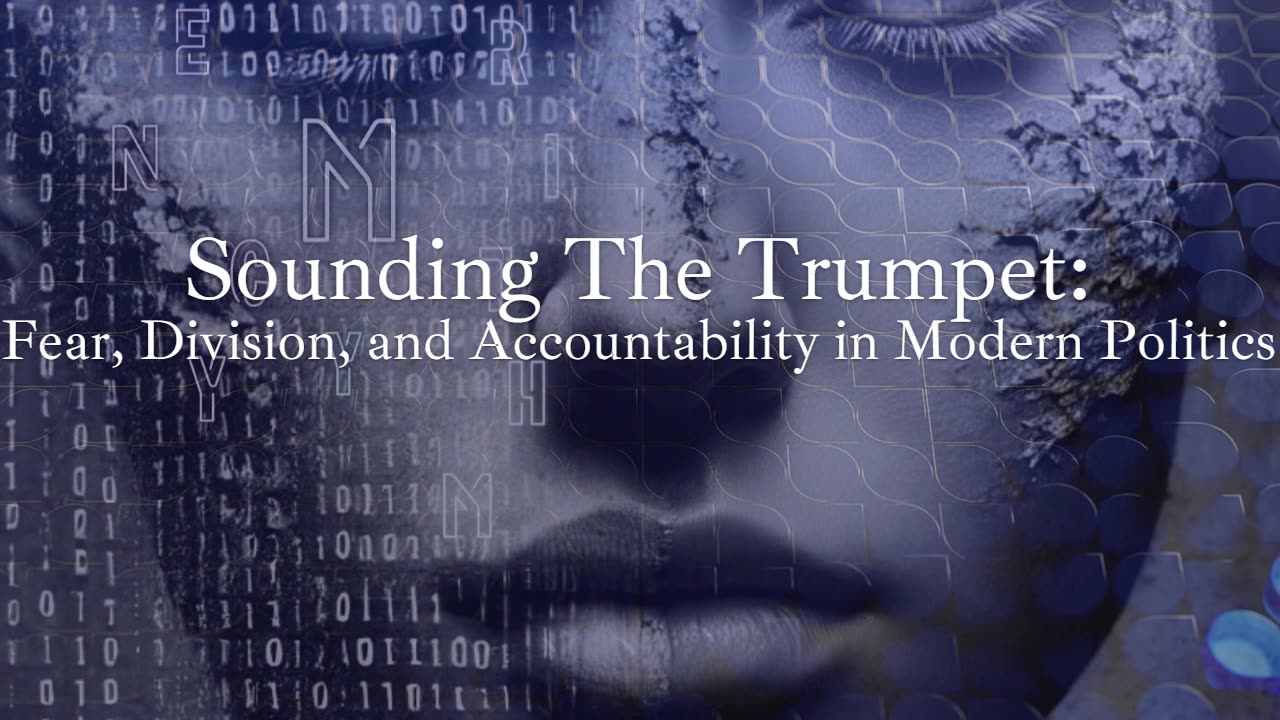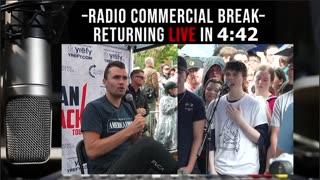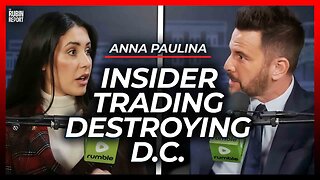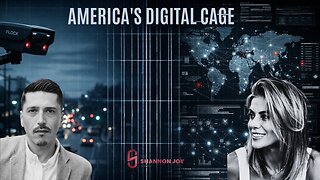Premium Only Content

Episode 5: Sounding the Trumpet: Fear, Division, and Accountability in Modern Politics
Sounding the Trumpet: Fear, Division, and Accountability in Modern Politics
Briefing Document Date: November 29, 2024
1. Political Rhetoric and Fearmongering
Key Insights:
Political rhetoric often fuels fear, division, and hysteria, with public figures, media personalities, and politicians using emotionally charged language to mobilize supporters or discredit opponents. This can escalate political violence and mistrust.
Nancy Pelosi's statements about ensuring Trump never returns to the White House exemplify the intense political opposition driving division.
Similarly, rhetoric from Trump opponents, including comparisons to Hitler and authoritarianism, heightens polarization and inflames tensions.
Source:
AP News: Pelosi's Statements on Trump
New York Post: Analysis of Political Rhetoric
2. Celebrity Influence on Political Discourse
Key Insights:
Celebrities often amplify political narratives, with figures like Oprah Winfrey, Jennifer Lopez, and Rosie O'Donnell making statements that some interpret as fearmongering. While they aim to inspire civic engagement, their rhetoric can be divisive.
Example: Oprah’s assertion that failure to elect Kamala Harris could mean the end of voting rights sparked criticism for exaggerating risks to democracy.
Source:
Washington Examiner: Oprah's Political Statements
EconoTimes: Celebrity Political Influence
3. Kamala Harris and Accusations of Authoritarianism
Key Insights:
Vice President Harris has faced criticism for policies perceived as overly punitive or authoritarian, such as her truancy laws as California Attorney General. Opponents argue that some of her stances, including strict gun control measures, align with authoritarian tendencies.
Harris's rhetoric on misinformation and hate speech has also raised free speech concerns.
Source:
Politifact: Fact-Check on Harris's Gun Policy
FactCheck.org: Analysis of Harris’s Truancy Laws
4. Shadow Government and Influence of Wealth
Key Insights:
The role of wealthy donors, lobbying firms, and corporations in shaping policy raises concerns about a "shadow government" or undue influence. Examples include Super PACs and lobbying efforts by industries like Big Pharma and tech.
Foreign actors, such as Russia and China, also influence U.S. politics through cyberattacks, propaganda, and financial investments.
Source:
The Atlantic: Dark Money in Politics
Vox: Shadow Government Theories
5. Free Speech Concerns
Key Insights:
Discussions about regulating misinformation and hate speech spark debates about balancing free speech with protecting democratic processes.
Kamala Harris and Tim Walz have both faced criticism for comments perceived as limiting free speech to combat harmful narratives.
Source:
New York Times: Free Speech vs. Misinformation
CNN: Harris and Walz’s Statements on Free Speech
6. Political Attacks and Violence
Key Insights:
Politically motivated violence has targeted both conservatives and liberals, with incidents ranging from bomb threats against Democratic lawmakers to physical assaults on Trump supporters.
Example: Thanksgiving bomb threats against Connecticut Democrats highlight the growing dangers faced by public officials across the political spectrum.
Source:
AP News: Political Violence Reports
Reuters: Election-Related Violence Analysis
7. Global Appreciation for American Music
Key Insights:
American music has a strong global following, with countries like the UK, Japan, Germany, and Brazil showing significant appreciation. Genres like pop, jazz, and hip-hop have cultural influence, often inspiring local adaptations and collaborations.
Source:
Billboard: American Music's Global Reach
Rolling Stone: Cultural Influence of U.S. Music
8. The Role of Media in Shaping Narratives
Key Insights:
Media outlets significantly influence public opinion, often through biased reporting or selective framing of events. Fox News, for instance, has focused on attacks against Trump supporters, while other outlets emphasize violence against Democrats, reflecting partisan divides.
Source:
Politico: Media's Role in Polarization
The Guardian: Analysis of Media Bias
Conclusion
Today’s discussion highlights the interconnectedness of political rhetoric, media influence, celebrity impact, and societal tensions. Addressing these challenges requires transparency, accountability, and critical media consumption. The analysis underscores the need for constructive dialogue to bridge divisions and restore trust in democratic institutions.
-
 1:01:16
1:01:16
DeVory Darkins
3 hours agoTim Walz hit with MAJOR SETBACK after Minnesota Mayors turn on him publicly
89.6K72 -
 4:56:36
4:56:36
LadyDesireeMusic
5 hours ago $2.87 earnedChristmas Spectacular! Last Stream Until After Christmas
19.5K2 -
 1:58:09
1:58:09
The Charlie Kirk Show
3 hours agoThe Epstein Finale? + JD Proves Himself + Economic Boom | 12.23.2025
102K39 -
 1:13:16
1:13:16
Sean Unpaved
4 hours ago49ers TAKE OUT Philip Rivers & Colts! | UNPAVED
24.2K4 -
 LIVE
LIVE
StoneMountain64
3 hours agoArc Raiders WIPE progress is SO FAST
122 watching -
 1:56:06
1:56:06
Nikko Ortiz
5 hours agoAirsoft Fights And Fails... | Rumble LIVE
25.7K -
 45:12
45:12
The HotSeat With Todd Spears
4 hours agoEP 229: THAT'S A WRAP!!!!!
26.9K15 -
 6:17:32
6:17:32
LFA TV
17 hours agoLIVE & BREAKING NEWS! | TUESDAY 12/23/25
177K45 -
 13:39
13:39
The Rubin Report
5 hours agoHow One Law Could Finally Force Both Parties to Stop Insider Trading for Good | Anna Paulina Luna
112K35 -
 1:32:06
1:32:06
The Shannon Joy Show
23 hours ago🔥SJ LIVE Dec 23 - The Best Of The SJ Show 2025! From Flock Cameras To Palantir
24K3